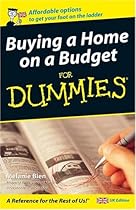by Broderick Perkins
© 2007 DeadlineNews.Com
Deadline Newsroom – Implications the media is somehow to blame for the state of the housing market generates the mental image of a blind weasel doing the Shuffle.
At first, it's novel, a real hoot, and quite a spectacle.
But it gets old fast, like any stupid pet trick.
Veteran real estate professional Joe Brown, president and chief operating officer of Coldwell Banker's Silicon Valley operations, overseeing two offices and 185 sales associates, was the latest to suggest the media is the primary culprit behind consumer behavior in today's tumultuous housing market.
To Brown's defense, during a pre-recorded interview with KLIV Radio 1590-AM in San Jose, CA, the producers spliced in a somewhat leading question ahead of Brown's response.
There should have been a follow up question to the response, if only to make sure Brown said what he meant to say and so that listeners didn't get his comment out of context.
In any event, in the pre-recorded context of the interview, the reporter asked Brown what's shaking buyers' and sellers' confidence in the market.
Brown replied, "I would say that the biggest impact right now, even though the economy is holding strong, is public opinion, and what they hear and read in the media plays a big part on whether they think it's a good time to buy or sell."
The statement instantly became an enigma wrapped in a riddle.
First, the comment was misleading, which, in part, is why KLIV should have called him on his answer during the recording.
The economy is not holding strong.
The Labor Department said this week, based on payroll estimates, the economy generated 166,000 jobs in October and unemployment held steady at 4.7 percent, thanks to stability in technology, small business and health care, as well as the lower-paying leisure and hospitality industries.
However, unemployment held steady because a separate household survey of real people revealed 200,000 people left the workforce.
Wages, rising only 3.8 percent since last year, aren't providing much of a cushion against declining home values and rising energy costs.
Gasoline is more than $3 a gallon in California, oil barons are poised to dump $100-a-barrel crude on the market and the housing-related finance crunch forced the Federal Reserve to lower interest rates again and pump another $41 billion into the economy to keep the credit-pinch from inducing an economic tailspin.
Thanks to the economy's 800 pound gorilla -- the mortgage-related financials sector -- Wall Street was a stomach-churning rollercoaster Halloween week.
That's not economic strength -- unless your mansion's 1,000 square-foot carriage house is full of Google stock options at $700 a share.
It's the economy withdrawing from a crack-like addiction to mainlined subprimes, Ninja loans, and ARMs and way, way too much dependence on fossil fuels.
Through all this economic news from a host of sources, there's Brown's implication that the media is the primary force directing the course of buyer and seller behavior and, by association, the course of the residential real estate market.
If only the media would just shut up and stop contributing to public opinion.
That's the companion cry-me-a-river implication that always comes with media bashing. If the media didn't report market conditions at the level at which they are actually occurring, consumer confidence would somehow gravitate to some higher plane of getting and spending discretionary cash.
Never mind that before there was a media and things went awry, the townsfolk hoisted axes, lit torches and marched down to the town square searching for truth in a pile of someone's cinders.
Even if we did live in that insane bizarro world where the media ignored the mortgage squeeze, wouldn't consumers discover they'd been had when the same mortgage application approved two years ago now comes back rejected?
Wouldn't they sort of figure it all out without being spoon fed by the media mind benders?
Less knowledge doesn't make consumers more confident.
It pisses them off.
What has consumers' knickers in a knot isn't the act of reading or watching the news. Such a simplistic rendition of today's complex economic conditions is a twisted denial of reality.
Consumers know what's happening to them. They are more and more often blocked from homeownership. They are losing hope and homes at a rate 100 percent greater than a year ago. The media isn't taking their homes.
Consumers know they trusted a housing market that sold them a bill of goods packaged with corruption and collusion likened to organized crime.
New York Attorney General Andrew Cuomo isn't suing First American Corp. subsidiary eAppraiseIT because of something printed in paper. The suit alleges the company "caved to pressure from Washington Mutual" to inflate property values of homes.
California recently passed a law making appraisal pressure illegal, not because a talking head on the nightly news lobbied Golden State legislators. Many appraisers bowed under increased pressure throughout the last housing boom and consumers were left holding the bag with over-priced homes that are now plunging in value.
Book cooking allegations are rising over the housing boom-spawned mortgage-backed securities sector, the Federal Bureau of Investigations, Secret Service and U.S. Postal inspectors have a growing case load of mortgage fraud which soared to record heights during the housing boom and federal regulators acted (far too slowly) several times in recent years to shore up regulations to give consumers greater protections when they go shopping for home loans.
Most consumers left twisting in the wind wind up financially ruined. Fifty-seven percent of foreclosure-prevention counselors surveyed by the California Reinvestment Coalition found the most common outcome for the homeowners they work with is foreclosure. A short sale outcome was reported by 33 percent of the counselors.
The media's job isn't to tell readers the sun is shining when their home is submerged in three feet of water. If the news is bad, it gets reported. In the next cycle, when the news is better, happy days will be here again -- in ink, online and on the air.
Rather than a society of censorship, we live in a free market where, for better or for worse, merchants get to try their untested, unregulated shenanigans on an unsuspecting public which too frequently doesn't know better to read the small print.
That's where the media comes in.
It's called the right to know.
It's either that or torches blazing across the town square.
• Is The Housing Mess The Media's Fault? Toll Brother's CEO Says It Is
• Savvy Consumers Don't Shoot Messenger
• Housing Mess Not Media Made
© 2007 DeadlineNews.Com
Broderick Perkins, an award-winning consumer journalist of 30 years, is publisher and executive editor of San Jose, CA-based DeadlineNews.Com, a real estate news and consulting service, and the new Deadline Newsroom, DeadlineNews.Com's new backshop. In both cases, it's where all the news really hits home.
DeadlineNews.Com's Editorial Content Is Intellectual Property • Unauthorized Use Is A Federal Crime
Friday, November 2, 2007
Media Still Not Responsible For Housing Woes
From The
Deadline Newsroom
on
11/02/2007 12:32:00 PM
![]()
Labels: Broderick Perkins, Deadline Newsroom, DeadlineNews.Com, economy, homeownership, housing, media, mortgage fraud, mortgage meltdown, NINJA loans, real estate news, stated income loans, subprime
Subscribe to:
Post Comments (Atom)


No comments:
Post a Comment